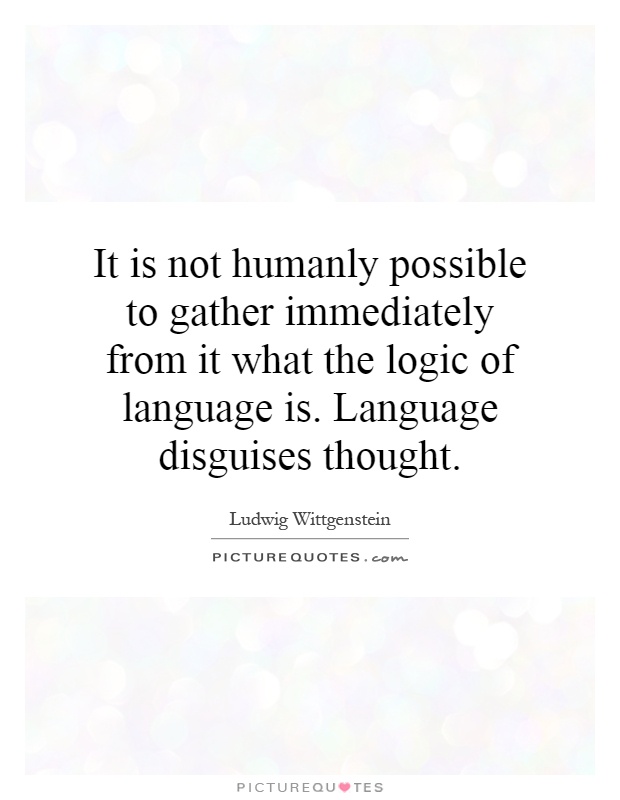It is not humanly possible to gather immediately from it what the logic of language is. Language disguises thought

It is not humanly possible to gather immediately from it what the logic of language is. Language disguises thought
Ludwig Wittgenstein, an Austrian-British philosopher, is known for his work on the philosophy of language and the nature of meaning. One of his most famous quotes is, “It is not humanly possible to gather immediately from it what the logic of language is. Language disguises thought.” This statement reflects Wittgenstein’s belief that language is a complex and often misleading system that can obscure the true nature of thought.Wittgenstein’s philosophy of language is deeply rooted in the idea that language is not simply a tool for communication, but a fundamental aspect of human cognition. He believed that language shapes the way we think and perceive the world, and that our understanding of reality is mediated through the structure of language. In this sense, language can be seen as a kind of “disguise” that obscures the true nature of our thoughts and experiences.
According to Wittgenstein, the logic of language is not immediately apparent to us because it is deeply ingrained in our everyday use of language. We are so accustomed to using language in a certain way that we often take its rules and conventions for granted. This can lead to misunderstandings and misinterpretations, as we may not be fully aware of the underlying logic that governs our use of language.
Wittgenstein’s philosophy of language has had a profound influence on the field of linguistics and cognitive science. His ideas have been instrumental in shaping our understanding of how language functions and how it influences our perception of reality. By highlighting the ways in which language can obscure thought, Wittgenstein has challenged us to think more critically about the nature of language and its role in shaping our understanding of the world.












 Friendship Quotes
Friendship Quotes Love Quotes
Love Quotes Life Quotes
Life Quotes Funny Quotes
Funny Quotes Motivational Quotes
Motivational Quotes Inspirational Quotes
Inspirational Quotes